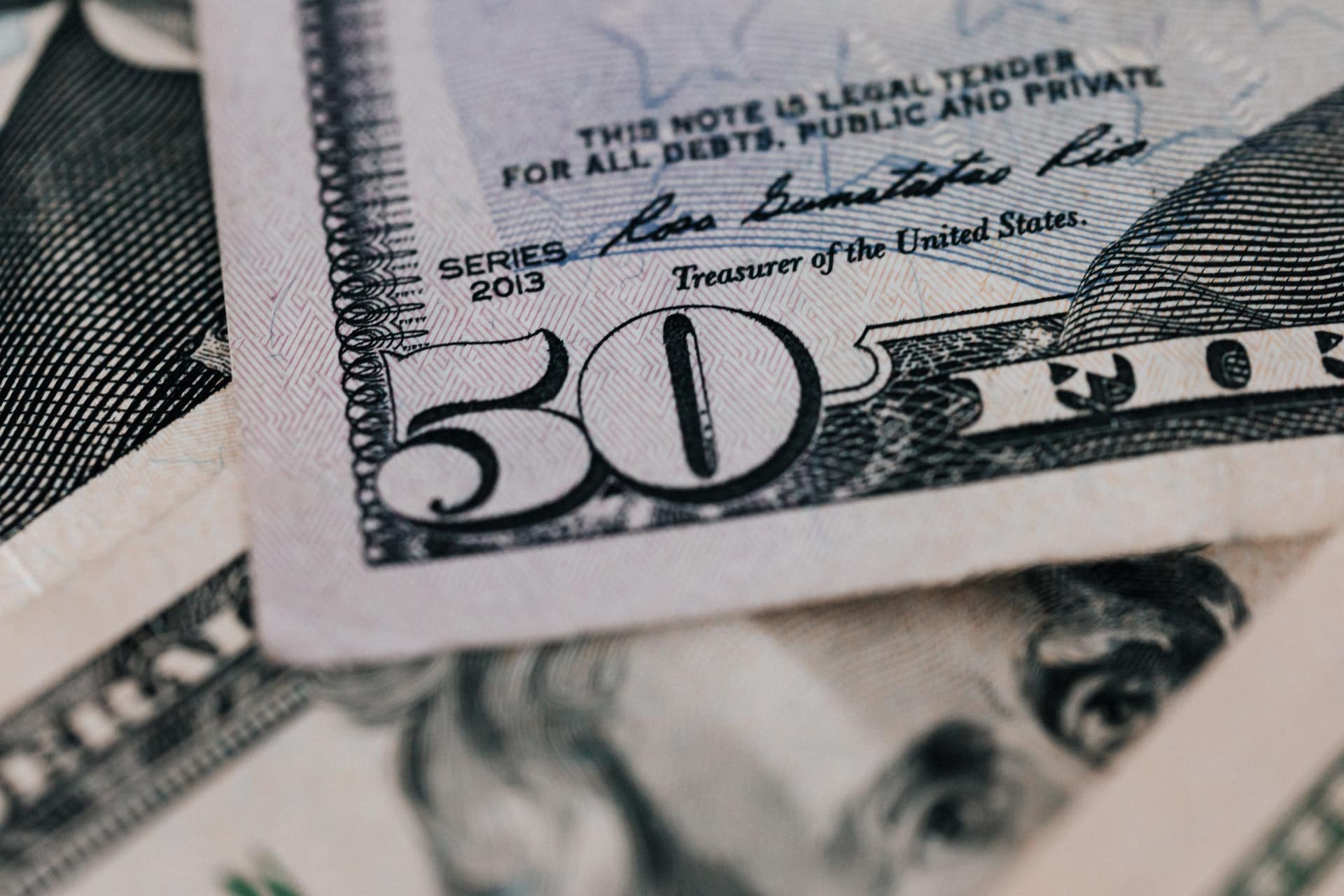You will be able to qualify for significantly more money in your loan or credit limit when you have a 700 credit score or higher. However, other factors will affect how much you may be able to borrow. While lenders will pay close attention to your credit score, they will also want reassurance that you can afford to pay back the loan through consistent income.
Your credit score impacts a great many things in your daily life, such as the apartment you can get with bad credit. The overall state of your credit will play a role in the majority of the financial decisions you make in your life. And it’s for this reason that credit scores are so heavily emphasized by personal finance experts.
Your credit score can determine what kind of car you drive and even, upon occasion, where you get hired. It will also have a direct impact on how much money you can borrow from a loan. Good credit scores will get increased credit limits on revolving credit and more significant loan amounts.
As of April 2022, the average FICO score was 716.1 However you are already in decent shape if you have a credit score of 700 points or higher. A 700 credit score is a good score that can unlock some excellent benefits. Having a good credit score will also make it easier to build upon your credit history to improve your score even further.
To determine how much you might be able to borrow with a 700 credit score, let’s take a look at how the credit scoring system functions as a whole.
Why Do Credit Scores Matter?
Credit reports and scores were created to help financial institutions and the like measure the trustworthiness and creditworthiness of individuals. The health of one’s credit is foundational to a solid and dependable financial future.
Reports are compiled by credit bureaus, who regularly report to lenders and credit card issuers. Your credit report includes four types of information: personal details, credit accounts, credit inquiries, and public records.
How Your FICO Score Is Calculated
Many different types of scoring models are available that calculate your score using the information on your report. However, the FICO score is the most popular and widely used scoring model.
Fair, Isaac, and Company (FICO) has been selling credit-scoring algorithms since 1956.2 The current FICO score is a three-digit number ranging from 300 to 850 points that functions as an accessible summary of the credit risk a borrower might pose to a lender.
The FICO score breaks down the information on your credit report into five metrics to calculate your total score:
→ Payment History (35%)
→ Credit Utilization (30%)
→ Length of Credit History (15%)
→ Credit Mix (10%)
→ New Credit (10%)
All these factors have the power to give you a higher credit score or a lower credit score depending on whether you exhibit good credit habits or not.
Is a 700 Credit Score a Good Credit Score?
Though each financial institution sets its own credit criteria, a 700 credit score is usually considered to be within the good credit range. Although a score of 700 is not considered an excellent credit score, it will qualify as a good credit score and well above the minimum requirements for most lenders.
Borrowers with a 700 credit score are considered prime borrowers as they fall in the good range in the score classifications. Subprime borrowers have a lower score within the fair and very poor range.
Divisions of Credit Scores
The divisions of FICO scores are as follows:
| Credit Score Range | Rating | Description |
| 300 – 579 | Poor | Individuals may be rejected for credit or may be required to pay a fee or deposit. |
| 580 – 669 | Fair | Below the average score of U.S. consumers. Some lenders will approve loans with this score. |
| 670 – 739 | Good | Near or slightly above the average of U.S. consumers. Most lenders consider this a good score. |
| 740 – 799 | Very Good | Above the average of U.S. consumers. Demonstrates to lenders that the individual is a dependable borrower. |
| 800 – 850 | Exceptional | Well above the average of U.S. consumers. Indicates an exceptionally low risk of default. |
While you won’t qualify for the same benefits as someone with very good or excellent credit, you will still be looked upon favorably by a majority of lenders.
How Much Can I Borrow With a 700 Credit Score?
When you have a poor credit score, the amount of money you can borrow on all types of conventional loans – car loans, installment loans, mortgages, and home loans – will be limited. Lenders are more unwilling to approve borrowers in the fair and very poor score ranges for a more considerable loan amount or higher credit limit because more risk is involved.
Having sufficient income to pay the monthly payments on your new loan will heavily factor into how much money you can be approved for by a lender. If your current score is good and you have substantial monthly income, then you should be able to access larger loan amounts.
Other Benefits of a Credit Score of Over 700
Now that you are aware that you can qualify for more money with a good FICO score, there are several other benefits you may enjoy as well. Though a score of 700 is not the best score you could have, it is good enough to open up solid financial opportunities; opportunities that could give you the chance to achieve a good credit score.
Here are a few of the benefits other than larger loan amounts you can take advantage of with the combination of adequate income and a good score:
Better Credit Limits
When reviewing your credit application, the credit card issuer will take several factors into account when deciding what your credit limit should be. They will also reevaluate these factors periodically on your existing credit accounts to determine if they want to give you an increase on your card’s credit limit. The higher your score is, the more substantial credit limit you may be able to get.
If you recently raised your credit score from the fair range, you might be able to ask for an increased limit. You will not be able to obtain credit limits as high as those with exceptional credit, but you can work your way up to it through responsible credit use. Companies will rely on other factors like your debt-to-income ratio and how long you’ve been a customer with them.
Competitive Interest Rates
Your credit score significantly affects what interest rate your lender will approve you for. Bad credit loans have higher interest rates to compensate for the increased risk. This is one way bad credit scores affect borrowing. A 700 credit score will enable you to get a better interest rate than subprime borrowers on all sorts of online loans, from a personal loan to a mortgage loan.
Rates for good range borrowers won’t be as consistently low as those with pristine credit, but they will be competitive, which is the perfect opportunity for rate shopping. Comparing and contrasting various rates you find through rate shopping is an excellent way to narrow down your most competitive options for a mortgage rate or conventional loan rate.
More Opportunities To Improve Your Credit History
With a 700 score, you will have more opportunities to improve your credit history. It can be challenging to find lenders who will approve you for new credit when you have a score of fair and below. This can be incredibly frustrating as new credit can be an instrumental part of improving your score. However, with your score in the good range, you will have far more opportunities to positively impact your credit history.
By putting in the hard work to get a higher score, you will be able to access even better rates and even larger loan amounts. You might even choose to spend some time improving your credit score altogether on less consequential products first to obtain a more competitive rate on auto loans and mortgage loans.
Tips for Raising Your Credit Score to Exceptional
We suggest putting a bit of time and effort into raising your credit score further, if possible, before making a big financial step like a mortgage. A higher credit rating could save you a significant amount of money on interest and mortgage insurance. A score of 700, while satisfactory, could use some work to put you in the best position you can be in when setting out to purchase a home.
Here are a couple of tips that will help you increase your score while you save money for a down payment:
Lower Your Credit Utilization
One of the quickest ways you can make an impact on your score is by decreasing your credit utilization ratio. Pay down your current credit card balances but keep your accounts open, so your available credit doesn’t go down.
By doing this, you will not only improve your utilization rate but also minimize your credit card debt. A lower debt-to-income ratio will also cause the bank to look at you more favorably when you apply for a mortgage, personal loan, etc.
Check Your Credit Report for Errors
Request a copy of your credit report to review regularly for any errors or inaccuracies. Consumers have a right to one free report every year. Checking your credit report often will allow you to catch inconsistencies right away before they have a chance to negatively impact your financial decisions.
Improve Your Credit Mix
If you have credit cards or other forms of revolving credit, it might be wise to use your 700 score to apply for installment loans or some type of other debt. A healthy mix of different kinds of accounts will improve your score so you can get even better rates and loan amounts. Variety is important in calculating your FICO score, so a small personal loan could be the perfect building block for a mortgage.
Be an Authorized User on an Old Account
A cool trick for getting a different FICO score nearly overnight is to have a trusted friend or family member add you as an authorized user on an older credit card account. The length of your credit history makes up 15% of your score, so increasing the average age of your credit will have a positive impact.
Never Pay Bills Late
Pay all your bills on time and don’t default on your debts. Your payment history accounts for the most significant percentage of your score at 35%. If you are consistent with your payments and have patience, you may see your credit improve as the months go.
Hopefully, with your efforts, you will see your score tick up to 750 and further to 800 or beyond. Once you obtain a good credit score, we suggest talking with the bank you’d like to get your mortgage from and discussing what rates might be available to you. You will surely receive a far better deal on the interest rate and mortgage insurance by working on your score before applying.
FAQs on Credit Scores and Loans
A credit score of 700 is generally considered good, and it can positively influence your credit limit. Lenders see you as a lower risk, which could lead to higher credit limits on your credit cards or loans. However, other factors like your income and debt-to-income ratio also play a role.
Credit bureaus compile your credit reports, which include your credit history, the types of credit you have, your payment history, and more. Lenders use this information to determine your creditworthiness. A good credit score like 700 indicates to lenders that you’re a responsible borrower.
A 700 credit score can help you get lower interest rates on balance transfer credit cards or installment loans, which are useful tools for managing and paying down credit card debt. It’s important to maintain good credit habits, like making payments on time, to keep your score within this range.
A 700 credit score is likely to qualify you for lower interest rates on personal loans. Lenders see borrowers with higher credit scores as less risky, which can lead to more favorable loan terms.
To improve your credit score from 700, consider strategies like paying all your bills on time, reducing your credit utilization ratio, checking your credit report for errors, and maintaining a good mix of credit.
While a 700 credit score can help, lenders also consider your debt-to-income ratio when deciding whether to approve you for a personal loan. If this ratio is high, it might be more challenging to get a loan, even with a good credit score. It’s important to work on reducing your debt to increase your chances of approval.
A Brief Summary From CreditNinja
A 700 credit score may help you get a good interest rate on a new loan. But remember that lenders base loan eligibility on more than just your credit score. Your ability to make on-time payments is critical. If you have bad credit, you may still qualify for an installment or personal loan if you have a reliable source of income. At CreditNinja, we accept a wide variety of income sources. Speak with an agent today to learn more about qualifying for a personal loan.
References:







